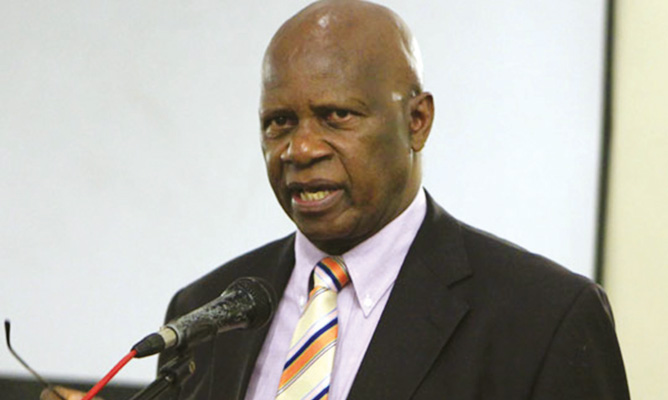
Zimbabwe is able to resuscitate its economy in the coming year. It is worrisome that analysts were denouncing the 2,7% economic growth that came out in the budget strategy paper that was prepared by Treasury.
By Chido Chikuni,Our Reader

There are a number of projects currently taking place under Zim-Asset.
Zimbabwe National Chamber of Commerce chief executive, Christopher Mugaga criticised the economic growth projection, saying the current electricity situation was going to affect the manufacturing industry extensively.
However, Mugaga should be advised that there is a viable project (Kariba South Power extension) in the energy sector, which upon completion, will assist and put to rest the electricity crisis which the nation is presently facing.
Also, Chinese energy firm, Chint Electric Company, through its local partner Intratrek Zimbabwe, is in the venture of power generation. This will be done through establishing a solar plant in Gwanda. Mounting a solar plant project is a positive move that I believe will reduce Zimbabwe’s crippling power deficit, thereby reviving the industries.
In August, President Robert Mugabe delivered a speech on the State of the Nation which focused on the economic enablers.
- Chamisa under fire over US$120K donation
- Mavhunga puts DeMbare into Chibuku quarterfinals
- Pension funds bet on Cabora Bassa oilfields
- Councils defy govt fire tender directive
Keep Reading
Revitalisation of the agriculture sector and agro-processing industries is one of the key factors on the economic growth plan.
Zimbabwe is poised to restore its breadbasket status of southern Africa if the agriculture sector is revived.
Also, Finance and Economic Development minister Patrick Chinamasa noted that government was promoting the resuscitation of the cotton industry.
While delivering the 2016 National Budget, Chinamasa noted government would provide cotton farmers with free inputs for three consecutive seasons.
This will boost the production of cotton, hence reviving textile firms, which are momentarily lying idle.
Considering that the nation received farming equipment from Brazil this year, recovery of the agricultural sector will definitely increase food security.
Most areas with low rainfall received irrigation machinery, which will also contribute in boosting food security.
Surely, the projection that Zimbabwe’s economic growth rate would increase in 2016 cannot be dismissed. Implementation of mega deals that were signed between Zimbabwe and China is another contributing factor that will support the nation’s growth rate.
It is pleasing that Chinese President Xi Jinping is expected in the country today on a State visit. It is imperative to note that the State visit by Jinping is projected at uplifting the political and economic bond that exists between the two nations.
Implementation of mega deals signed between the two governments, Zimbabwe and China, will witness miserable moments for prophets of doom like MDC-T spokesperson Obert Gutu, who has been always been berating the Look East Policy.
Recently, Nigerian billionaire Aliko Dangote was issued with licences for three projects by the Zimbabwe Investment Authority.
The three projects, which the Dangote Group wishes to invest in, are an energy plant using coal, cement manufacturing plant and a coal-mining venture.
Full implementation of such deals will indeed add value to the economic growth of the nation.
Myopic politicians should be ashamed of failing to appreciate the efforts that government is making in trying to revive the economy. The same myopic politicians have been nonsensically criticising the economic blueprint, ZimAsset, saying it was failing to deliver its promises within the set time period of 2013-2018.
However, what surprises most is that the set period has three more years ahead. It’s only two years since ZimAsset kicked off, hence, most of the projects are in progress.
It is pleasing that Cabinet has approved the civil service audit, which was carried out by the Civil Service Commission in April this year. The main aim of the audit was to reduce the government wage bill.
Currently, the civil service is bloated, hence compromising revenue that is collected monthly.
As it stands, 92% of the government’s revenue is channelled towards civil service expenditure. This has been affecting financing of government programmes.











